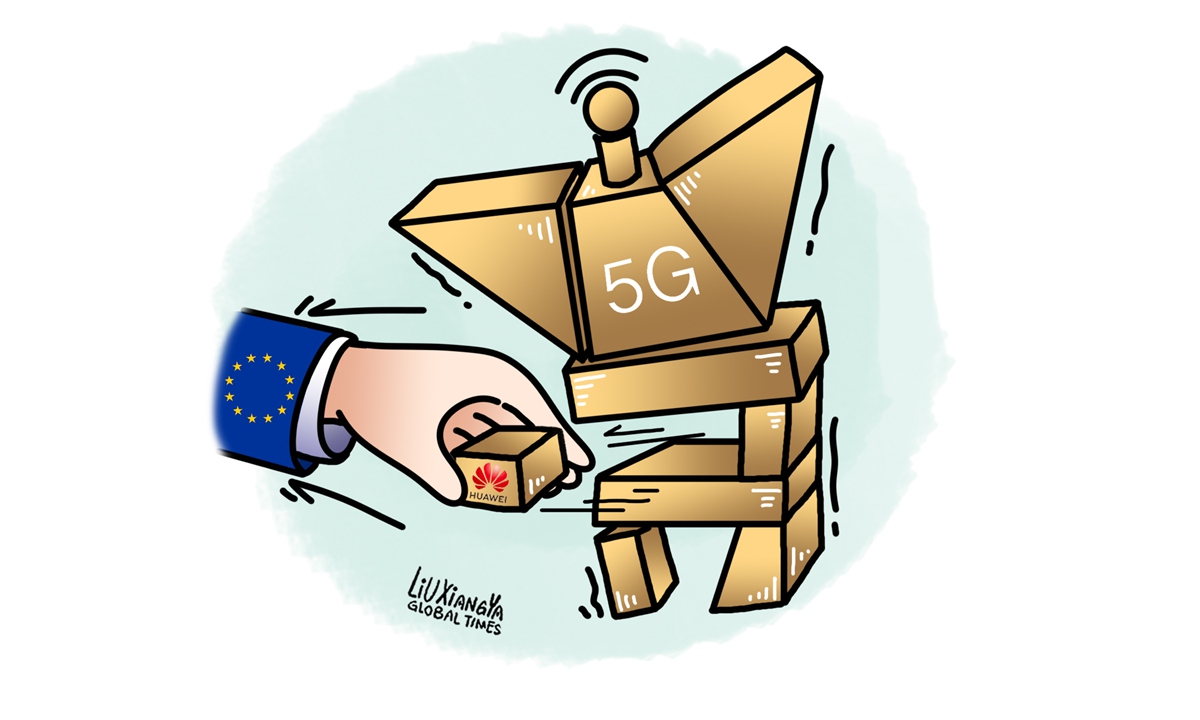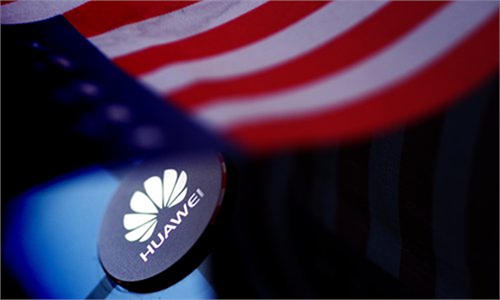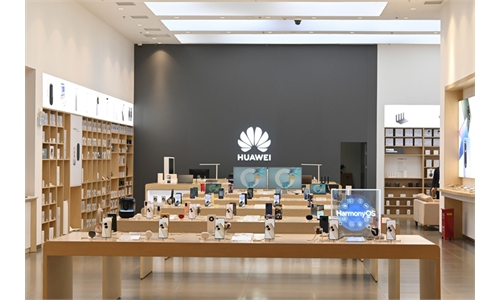
Illustration: Liu Xiangya/Global Times
While some EU politicians appear to have hardened their China stance by putting forward the need to "de-risk" economic ties with China, debate has once again been sparked over Huawei's 5G technology. It's not a blessing for 5G development in Europe.The EU is set to urge Germany to do more to reduce its use of Huawei gear in its 5G network when Brussels publishes a progress report in coming days, Reuters reported on Tuesday, citing two sources familiar with the matter. This was echoed in a Financial Times report published several days ago, which said the EU is considering a mandatory ban on member states using companies "deemed to pose a security risk to their 5G networks," including China's Huawei.
The news came at a subtle time, as EU's "de-risking" plan is meeting resistance from some state members. Several western European states take issue with a presentation of European Commission President Ursula von der Leyen's proposal for "a new China strategy," the South China Morning Post (SCMP) reported on Saturday. "There are worries that von der Leyen's European Commission is moving too quickly and too expansively," the report said.
At the moment, anti-China forces within the EU have started another round of groundless hype that the Chinese government could use Huawei to spy, and their real intention is to hype up so-called China's threat, further promote economic "de-risking," and impose pressure on state members. This once again demonstrates that banning Huawei is a political issue, not an economic one.
Huawei has never undermined the security of any European country. A 2022 report compiled by Danish firm Strand Consult found that 59 percent of the 5G RAN in Germany comes from Chinese vendors like Huawei and ZTE. Prohibiting the use of Huawei will cause significant economic losses. In considering Germany's own interests, German politicians should maintain strategic sobriety and give top priority to develop 5G networks and information technology infrastructure, instead of succumbing to external pressure.
As for Europe, it is unrealistic for the continent to promote 5G development while excluding Huawei. Huawei's 5G technology, which is mainly based on microwave technology - using base stations instead of optical fibers - is irreplaceable currently. As other alternative solutions like Open RAN are still not feasible, if the EU urges its member states to take restrictive measures against Huawei's 5G equipment, or even impose the ban on Huawei, Europe is actually cutting off its own opportunity in 5G development.
Even if the EU plans to promote Open RAN technology, the O-RAN Alliance also has many Chinese companies, such as China Mobile, China Telecom, and China Unicom, participating in it. In the end, it is impossible for EU to bypass Chinese technology to develop the next generation of communication networks. For instance, The EU is funding Huawei to run cutting-edge research on next-generation communication systems, even though several European governments have banned the Chinese tech group from their telecoms networks, the Financial Times reported on Wednesday.
In the field of 5G and other emerging technologies, China has always adhered to open cooperation, promoted mutual benefit and win-win results globally. China carries out mutually beneficial cooperation with multinational companies and international organizations in various aspects such as technology, industry and applications. China supports foreign-funded enterprises to participate fairly in the domestic 5G market, and supports Chinese 5G enterprises to provide high-quality products and services to countries around the world.
Even as the US and its allies have been promoting "decoupling" from China in terms of 5G and the ban on Chinese companies has created great difficulties for Huawei and other related Chinese companies to promote international cooperation, when Chinese manufacturers and companies cooperate with Europe and other regions, they actively seek the greatest common grounds with local businesses and society.
Faced with the interference of political factors in the US and the West and the highly complex environment of foreign markets, Chinese companies will continue to seek cooperation with countries and foreign companies that are willing to treat Chinese companies fairly.
It has become a consensus among many European officials, scholars and business representatives that opportunities far outweigh challenges for cooperation between the EU and China in areas such as 5G. It is hoped that more European countries and companies will carry out mutually beneficial cooperation with Huawei in 5G field, and rational voices advocating pragmatic cooperation with China will prevail in Europe.
The author is a reporter with the Global Times. bizopinion@globaltimes.com.cn



